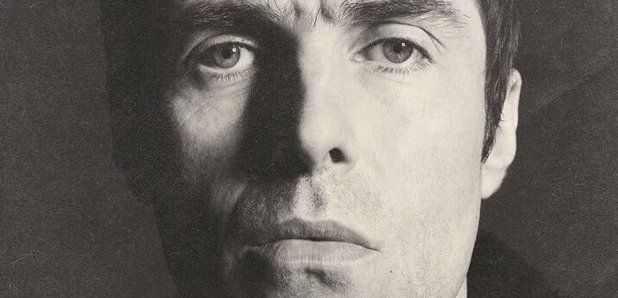Liam Gallagher releases full-length ‘As You Were’
by Jason Ebbs
2017-10-18

Liam Gallagher
As You Were
Warner Bros. Records · October 6, 2017

[three_fourth]It’s almost effortless to hate him. Like a pimple before prom, Liam Gallagher’s presence is usually never a wanted occurrence. The former Oasis frontman is notorious for being one of the most arrogant bastards the music scene has ever witnessed. In the years following Oasis’s breakup in 2009, it seemed that Gallagher only opened his mouth to unreasonably criticize others (most notably, his brother and former bandmate Noel) or remind the public of his glory days in an attempt to grasp onto his dwindling relevance. However, after three years since the split of Beady Eye (the group formed by remaining Oasis members after Noel departed in 2009), Gallagher has opened his mouth with the intent of delivering something other than trash. His first solo record As You Were was released on October 6, and is already on track to salvage his relevance in the world of music.
In being a firm hater of Liam as a human being but a lover of his past work, I was conflicted just before the release of the album’s lead single, ‘Wall of Glass.’ I was prepared to hate it. I was eager to rip it apart. But I couldn’t stop replaying the damn thing over and over.
‘Wall of Glass’ introduces the return of Liam Gallagher with a pulsing snare beat that truly stimulates; the kind that evokes images of a dark arena performance where the pounding bass is palpable from the back of the venue. After years of vocal abuse and decreasing range, Liam has shown that his attitude now has something to back up: his voice. The snarl in his presentation grabs you by the face, spits in it, and walks away arrogantly before you can muster up a response. Quite accurately, Gallagher told NME in a recent interview that ‘Wall of Glass’ is “an absolute stomper.” This energy that creates a contracted sense of arrogance is fueled by other “stompers” like ‘Greedy Soul,’ ‘I Get By,’ and ‘Come Back to Me’ where Liam capitalizes on the opportunity to express his rockstar prowess. The whine and grit in his voice re-establishes one of the primary building blocks of rock and roll: imperfection. For a true rock star, talent’s contribution to music is nothing without an equal amount of supplementary attitude and passion, and Gallagher nails down this principle with one-liners like, “I got the Midas Touch” and “I hope you go to hell.” Although the musical composition heard on these tracks is not exceptionally intricate or dangerous, As You Were contains a healthy blend of cooperating guitar parts that stay true to typical rock music while forming interesting relationships between instruments. The marriage of a rolling bass line, a swinging drum groove in a 6/8 time signature, and a seemingly familiar chord progression in the latter half of ‘I Get By’ creates the feeling of speeding across the ocean in a motorboat at sunset while the wind pulls your skin back.
Although the album is rich with attitude and grit, Gallagher seizes half of the twelve-track listing with the goal of showing his sentimental side. He does so most notably in the four-minute apology ‘For What It’s Worth’ by admitting, “I’m sorry for the hurt, I’ll be the first to say I’ve made my own mistakes.” It is indiscernible who exactly Liam is apologizing to; is it the array of celebrities he’s called “knobheads” and “tw*ts”? His string of illegitimate children? His two ex-wives? The collection of paparazzi he’s socked in the face throughout the years? Perhaps it’s a collective admittance to all. Regardless, the notoriously childish Gallagher has finally grown some balls and taken a four minute slice of responsibility for his antics. (To avid Oasis fans and anyone who knows anything about Liam Gallagher, one thing is unfortunately almost certain: none of this apology was meant for Noel.)
Liam explores ways in which solemn beauty can be expressed through music with the simplicity of the beautiful ‘Chinatown’ and the Bowie-esque acoustic guitar in ‘Paper Crown’ paired with alluring harmonies and falsetto flares. This elegance comes as a bit of a shock from the man who nearly stuck a BRIT award trophy up his ass in 1996, but shows a significant development in his character as well as a sense of creative independence from past collaborators. With Noel writing a majority of Oasis’s songs, Liam never had much room for original expression back then. The album comes to a close with ‘I’ve All I Need’ which expresses appreciation and a sense of closure for both the album itself and Gallagher’s possible unwillingness to let go of his height of fame. With lines like “There’s no time for looking back, thanks for all your support,” he suggests that he’s found a chance to move on from his passed heyday of success by being able to appreciate it without attempting to recreate it. As the album comes to a close, it is quite believable when Liam repeats “I’ve all I need and more” with a quiet sense of satisfaction.
As You Were displays a stellar collage of attitude, sentiment, arrogance, apology, hate, and love, splattered by a chaotic artist who is in the midst of a personal change. The album is evidence that a rock star still exists, a rock star who has shown steps in the direction of not being labeled a cynical washup. I hate to admit it, but I sincerely hope that this is not the last we see of Liam Gallagher.
[/three_fourth]
[one_fourth]
Listen to As You Were here:
[/one_fourth]
